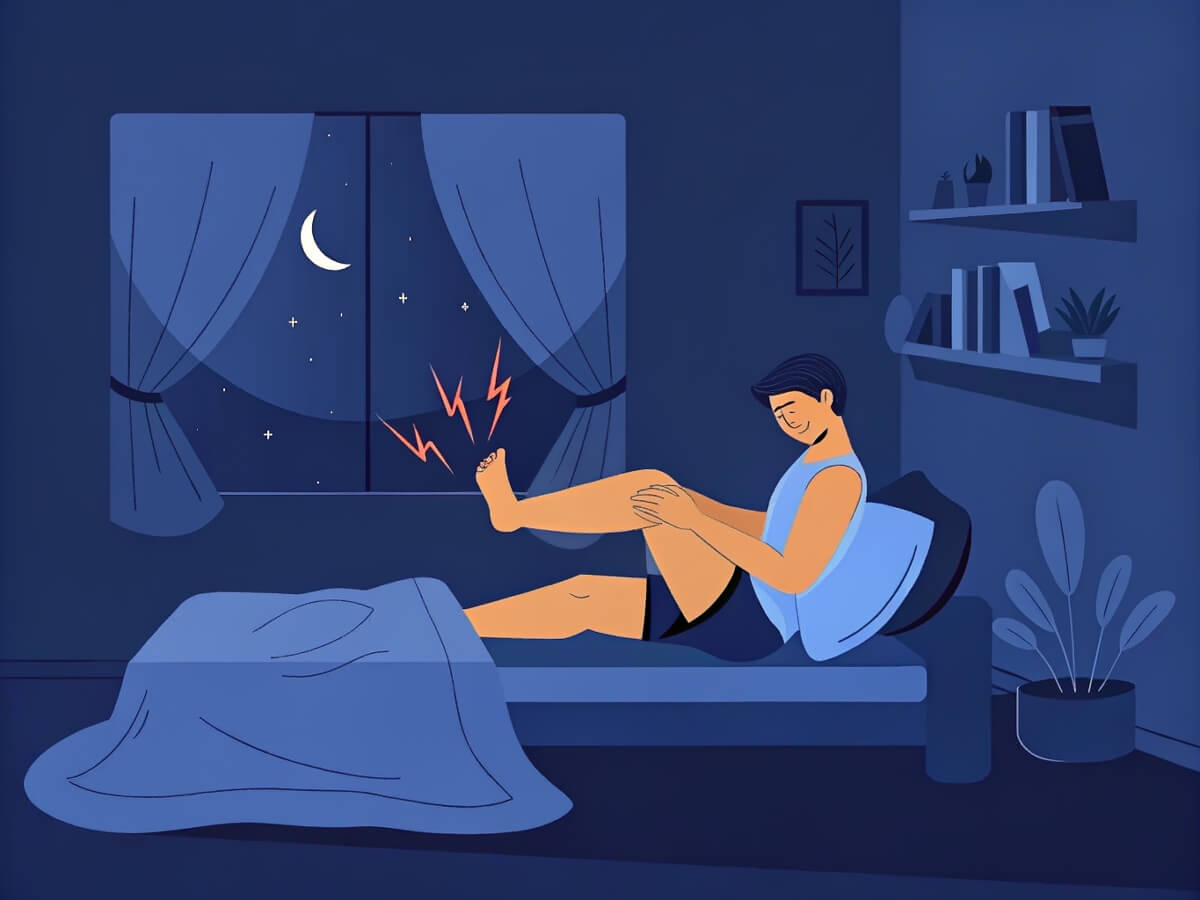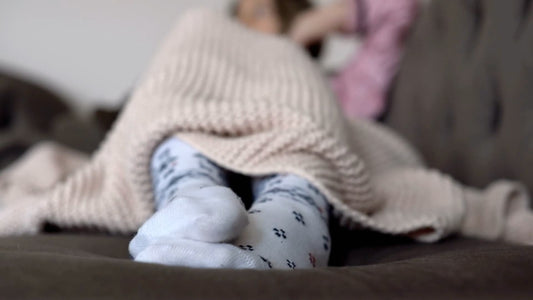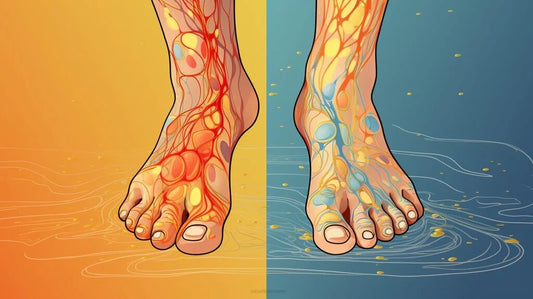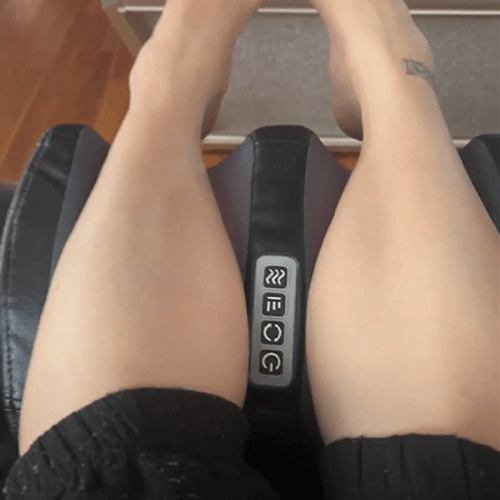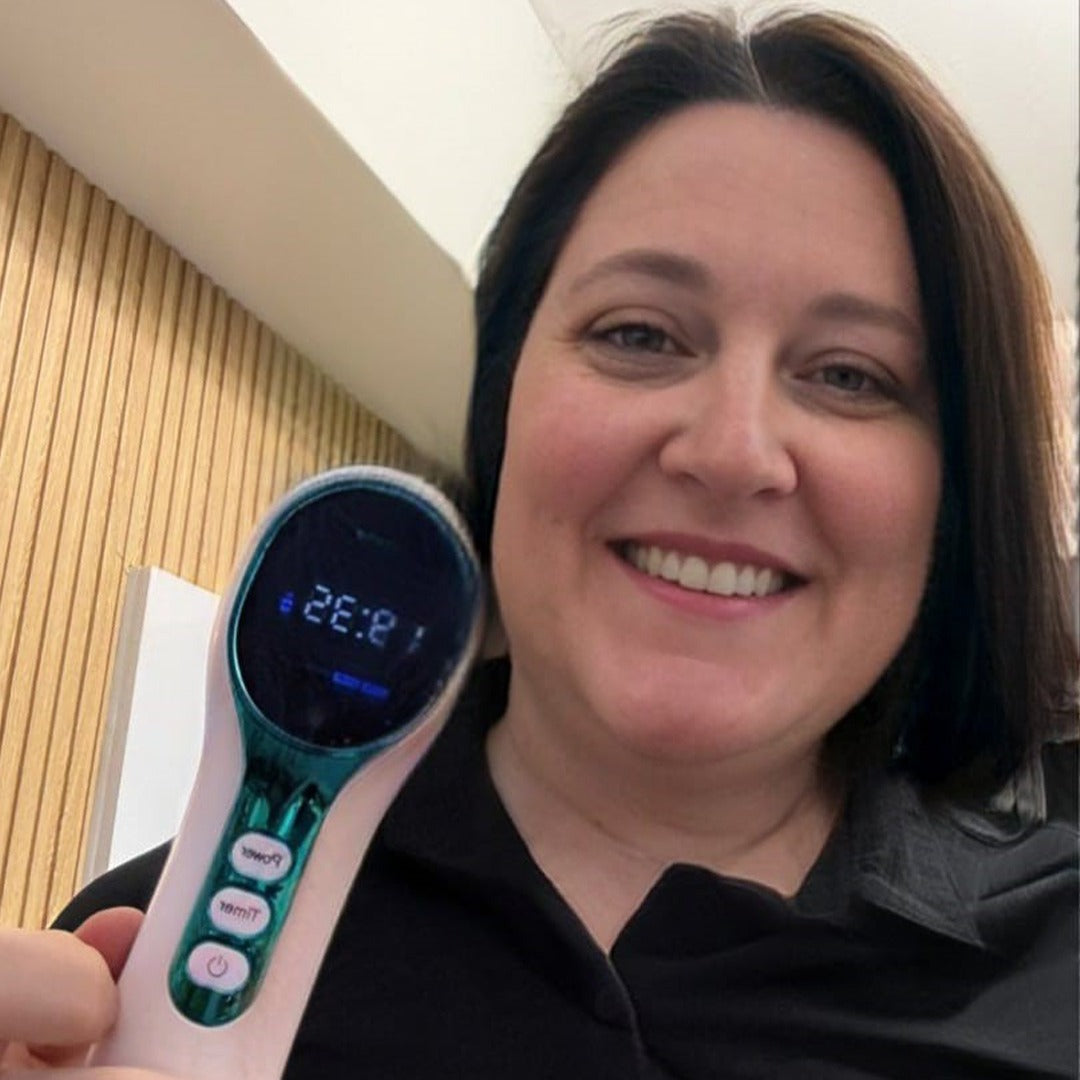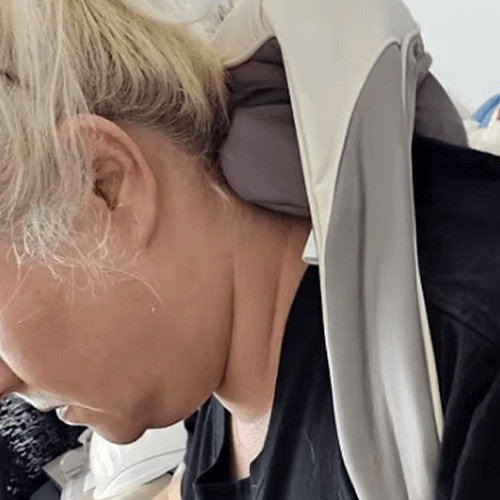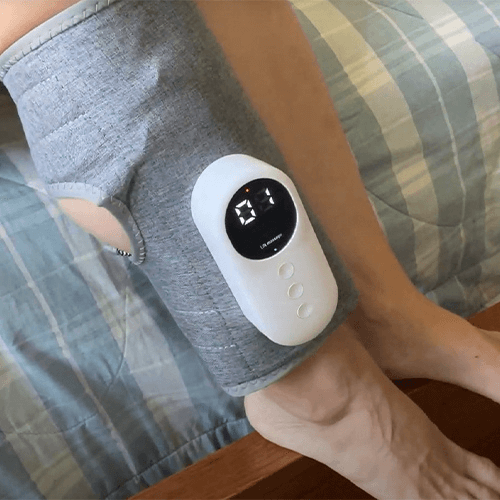If you’ve ever wondered why your symptoms spike the moment you try to relax, or why you wake up in pain, you’re not alone.
Nighttime neuropathy is a common struggle, and it’s frustrating when nothing seems to work.
Here’s what’s really going on
When you lie down, your body’s circulation changes.
Gravity is no longer helping to pull blood toward your feet, which can reduce the flow of oxygen and nutrients to your nerves.
For damaged nerves, like in peripheral neuropathy, that lack of circulation can make pain signals more intense.
But you might be wondering...
"Why does this only happen at night and not when I lie down during the day?"
The answer lies in how your nervous system changes over the course of the day.
In the evening, your body naturally shifts into "rest mode" as part of its circadian rhythm.
This can slow down circulation and increase inflammation.
So, even if lying down during the day doesn’t trigger pain, the biological changes at night can create the perfect conditions for flare-ups.
And there’s more to the story.
At night, your brain is less distracted.
During the day, you’re processing a constant stream of sounds, sights, and sensations.
But when you lie down in a quiet room, those pain signals become the loudest thing your brain notices.
Finally, there’s inflammation.
When your body is at rest, inflammation can increase—and that irritates already sensitive nerves.
Reduced circulation, a brain focused on pain, and increased inflammation create the perfect storm for nighttime flare-ups or waking up in pain.
What Does Help: Practical Strategies for Relief
So, if the usual advice doesn’t cut it—what actually works?
The truth is, no single solution works for everyone.
Everyone’s body responds differently, so it may take some trial and error to find what works best for you.
But these three strategies have helped many people struggling with neuropathy find relief:
1. Elevate Your Legs
Raising your legs slightly with a pillow under your calves can improve circulation without compressing sensitive nerves.
This simple change can ease the burning or tingling sensations.
Some people find that keeping their legs elevated for 20-30 minutes before bed can prevent nighttime flare-ups.

2. Temperature Therapy
A warm foot soak before bed can stimulate blood flow and relax tense nerves.
Others find that cooling their feet with a cold pack helps reduce inflammation.
For deeper relief, at-home red light therapy can ease inflammation and promote nerve repair.
This safe, drug-free approach uses low-level light to stimulate nerve regeneration over time.
If you want to know whether red light therapy is right for you, read our dedicated blog on this innovative treatment.
3. Gentle Nerve Stimulation
Devices like a TENS unit deliver low-frequency nerve stimulation, which can reduce nerve pain by interrupting pain signals.
Using one for 15-20 minutes before bed can dial down the intensity of nighttime symptoms.
Many people report that combining TENS therapy with stretching exercises provides the most relief.

And here is a bonus tip
Some people with neuropathy find that wearing compression socks during the day can help improve circulation and reduce swelling, which may prevent nighttime flare-ups.
However, there are many socks on the market that are too tight and can worsen nerve pain.
A good pair should provide graduated compression—meaning they are tighter around the ankle and gradually loosen up the leg.
Look for socks with a pressure of 15 to 20 millimeters of Hg (mmHg), which is firm enough to boost circulation without being too restrictive.
Key Takeaways
-
Nighttime neuropathy flare-ups are common and have real biological causes—including reduced circulation, increased inflammation, and a brain more focused on pain in a quiet environment.
-
Lying down changes blood flow, especially to the legs and feet, which can intensify symptoms in damaged nerves.
-
Your body’s natural nighttime processes, like circadian rhythm shifts, can slow circulation and heighten inflammation, worsening nerve pain.
-
Distraction plays a role: At night, without the constant stimuli of daily life, your brain zeroes in on pain signals.
-
Effective relief often requires a mix of strategies. Elevating your legs, using temperature therapies, or trying gentle nerve stimulation (like TENS or red light therapy) can help reduce symptoms.
- Compression socks may also help, as long as they provide the right level of graduated pressure (15–20 mmHg) without irritating sensitive nerves.

